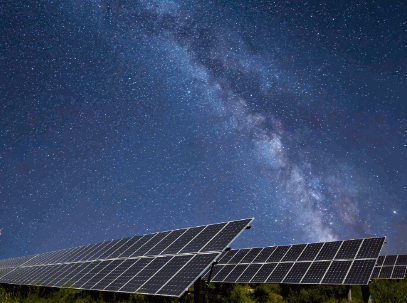
Curious about solar panels and how they work? Wondering if they can generate energy at night?
We will explore the ins and outs of solar panels, including how they function, the benefits they offer, and potential drawbacks.
We will also discuss net metering, battery storage, and ways to optimize the use of solar panels.
Whether you're considering making the switch to solar energy or simply want to learn more, this article has you covered.
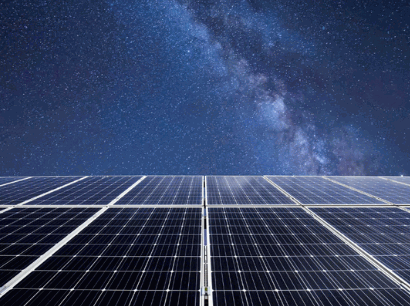
Table of Contents
Solar panels, also known as photovoltaic panels, are devices that convert sunlight into electricity through the photovoltaic effect.
These panels consist of multiple solar cells made of semiconductor materials like silicon. When sunlight hits the cells, the photons in the light knock electrons loose, generating an electric current. This direct current (DC) is then converted into alternating current (AC) by an inverter, making it suitable for powering homes, businesses, and even entire communities.
There are different types of solar panels available, including monocrystalline, polycrystalline, and thin-film panels, each with its own unique benefits and applications. Monocrystalline panels are known for their efficiency, while thin-film panels are flexible and lightweight, making them ideal for unconventional installations.

Solar panels work by harnessing sunlight through solar cells, which contain photovoltaic materials that generate direct current (DC) electricity when exposed to sunlight.
When sunlight hits the solar panels, the photovoltaic materials within the solar cells absorb the energy from the photons. This absorption process creates an electron flow within the material, leading to the generation of electricity. The generated direct current (DC) electricity is then converted into alternating current (AC) through an inverter for use in homes and businesses. Solar panels consist of multiple solar cells interconnected in a series, enhancing the overall efficiency of the system by capturing more sunlight. This interconnected network of cells forms the backbone of the solar panel system, allowing for the efficient conversion of sunlight into usable electricity.
Explore in-depth: How To Clean Solar Panels On Roof
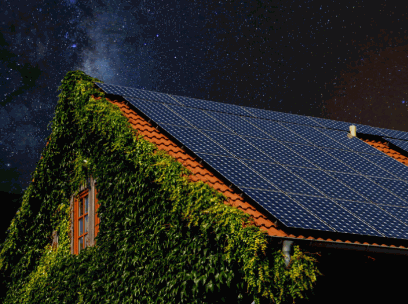
Solar panels do not produce electricity at night due to the absence of sunlight, which is essential for the generation of solar power.
This limitation of solar panel operation poses a challenge for meeting energy needs during nighttime hours. As the reliance on traditional grid electricity remains high after sunset, finding alternative solutions is crucial. One such solution is the integration of solar battery storage. Solar batteries store excess energy generated during the day, allowing it to be used at night. This helps reduce dependence on the grid during non-daylight hours and promotes greater energy self-sufficiency.
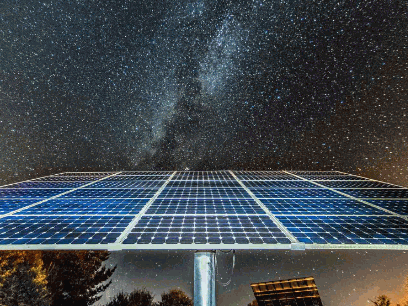
Net metering is a billing mechanism that allows solar panel owners to receive credit for the electricity they contribute to the grid during times of excess production.
This system works by allowing the meter to spin both ways, crediting the owner for the surplus energy fed back into the grid. In essence, the solar panel owner becomes a mini power producer, reducing their electricity bills significantly with the credits earned.
One of the key benefits of net metering is that it promotes renewable energy adoption by making solar installations more financially viable. It helps reduce strain on the grid during peak hours and encourages sustainable energy practices.
Battery storage systems are used in conjunction with solar panels to store excess electricity generated during the day for later use, providing backup power and increased energy self-sufficiency.
By storing surplus power, battery storage addresses the intermittent nature of solar energy, ensuring a reliable electricity supply even when sunlight is scarce. During periods of low sunlight or high energy demand, these systems kick into power homes and businesses. The integration of battery storage with solar panel installations not only maximizes the efficiency and effectiveness of the entire system but also reduces reliance on the traditional grid, leading to cost savings and environmental benefits.
Solar panels offer numerous benefits, including serving as a renewable energy source, reducing electricity costs, and contributing to environmental sustainability.
By leveraging the capabilities of the sun, solar panels generate clean energy that can be used to power homes and businesses. This not only reduces the reliance on non-renewable resources but also helps in cutting down on monthly utility bills. The financial savings from lower electricity costs can add up significantly over time, making them a cost-effective investment.
The use of solar technology plays a crucial role in promoting environmental sustainability. By producing electricity without emitting harmful greenhouse gases, solar panels help in combating climate change and reducing air pollution. This leads to a healthier environment for current and future generations to enjoy.
Solar panels are a key contributor to renewable energy sources, harnessing sunlight to generate clean and sustainable electricity.
By converting sunlight into electricity, solar panels play a crucial role in reducing greenhouse gas emissions, combating climate change, and decreasing reliance on traditional fossil fuels. The use of solar energy helps in creating a more sustainable energy system by offering an abundant, renewable, and environmentally friendly power source. The scalability and versatility of solar panels make them adaptable to various settings, from residential rooftops to large-scale solar farms, further bolstering their importance in the global shift towards cleaner energy alternatives.
Installing solar panels can lead to significant cost savings over time by reducing monthly electric bills and increasing energy efficiency.
By leveraging the capabilities of the sun to generate electricity, homeowners and businesses can offset their reliance on traditional energy sources, thus lowering their utility expenses considerably. This shift towards renewable energy not only contributes to a more sustainable future but also shields consumers from the volatility of energy prices in the long run. Many governments offer financial incentives and rebates for installing solar panels, making it a financially attractive investment with high potential returns in terms of lower operational costs and increased property value.
Solar panels offer environmental benefits by producing clean energy, reducing carbon emissions, and promoting sustainability in energy consumption.
One significant positive impact of solar panels is their role in combating climate change. By leveraging the capabilities of the sun to generate electricity, solar panels help decrease our reliance on fossil fuels, which are major contributors to greenhouse gas emissions. This transition to renewable energy sources is crucial in minimizing environmental harm and fostering sustainable energy practices for a more eco-friendly future.

While solar panels offer numerous benefits, they also come with drawbacks such as high initial expenses, reliance on sunlight for electricity production, and ongoing maintenance and repair costs.
One of the primary challenges associated with solar panel adoption is the significant upfront investment required for purchasing and installing the system. This initial cost can be a barrier for many households or businesses looking to switch to renewable energy sources.
The effectiveness of solar panels heavily depends on weather conditions, with cloudy days or limited sunlight impacting their electricity output. This inconsistency in power generation can lead to fluctuations in energy supply, affecting the overall reliability of the system.
Regular maintenance and repairs are also essential to ensure the optimal performance of solar panels over time. Dust accumulation, shading from nearby structures, or technical malfunctions can hinder the efficiency of the system, necessitating consistent upkeep and monitoring to maximize its lifespan and output capacity.
One of the primary drawbacks of solar panels is the high upfront cost involved in purchasing and installing a solar system for residential or commercial use.
Factors contributing to the high initial investment include the cost of solar panels, inverters, mounting hardware, and professional installation fees. The need for permits, inspections, and potential upgrades to the existing electrical system can further add to the expenses. These costs can vary depending on the size of the solar system and the complexity of the installation.
Strategies for cost mitigation include exploring government incentives, tax credits, and rebates available for solar installations. Shopping around for competitive quotes from different solar providers can also help in finding cost-effective options. Some individuals opt for financing or leasing arrangements to spread out the payments over time, minimizing the immediate financial burden.
Solar panels rely on sunlight for electricity production, making them dependent on clear skies and direct sunlight, which can be limited during cloudy days or inclement weather.
Cloudy days can significantly reduce the efficiency of solar panels as the clouds block a portion of sunlight from reaching the panels. This reduction in sunlight can lead to a decrease in power output from the solar system, impacting the overall energy generation.
To combat this issue, advancements such as Brightbox battery storage have been introduced to store excess energy generated during sunny periods for use during cloudy days, ensuring a more consistent power supply. These technological solutions help mitigate the effects of sunlight variability on solar panel performance, making them a more reliable source of renewable energy.
Solar panels require regular maintenance and occasional repairs to ensure optimal performance and longevity, which can result in additional costs for solar system owners.
Regular cleaning of solar panels is essential to remove dirt, dust, and debris that can decrease their efficiency. Inspections should be carried out periodically to check for any signs of wear and tear, such as damaged cables or loose connections, which could impact the system's performance.
Along with routine maintenance, repairs may be necessary in case of malfunctions or damage. This is where solar companies and installers play a crucial role, as they are trained to identify and address issues to keep the system running smoothly.
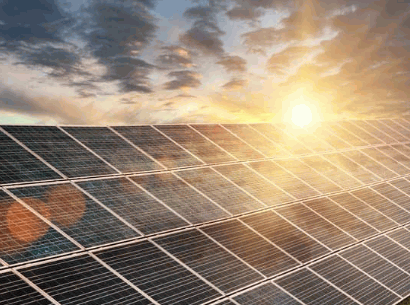
To maximize the benefits of solar panels, consider optimizing their placement, using energy-efficient appliances, and integrating battery storage systems for enhanced energy management.
In terms of positioning solar panels, ensuring they face south in the Northern Hemisphere or north in the Southern Hemisphere can significantly boost their energy production.
Optimizing the placement of solar panels involves considering factors such as sunlight exposure, shading, and local weather conditions to maximize electricity production.
One crucial aspect of achieving optimal solar panel placement is understanding the path of the sun throughout the day and throughout different seasons. By strategically positioning the panels to capture the most sunlight possible, you can significantly boost their energy output. Placing solar panels where they are least likely to be obstructed by trees, buildings, or other structures is essential for ensuring consistent electricity generation.
Pairing solar panels with energy-efficient appliances can further increase energy savings and reduce overall electricity consumption, enhancing the cost-effectiveness of solar power.
By incorporating energy-efficient appliances alongside your solar panel system, you can create a harmonious energy-saving ecosystem within your home or business. These appliances are designed to consume less electricity while maintaining optimal functionality, complementing the renewable energy produced by solar panels.
This synergy helps in maximizing the utilization of solar energy, ensuring that the electricity generated is utilized efficiently. As a result, you not only reduce your reliance on the grid but also decrease your utility bills significantly over time. The combination of solar power and energy-efficient appliances aligns with sustainable practices, contributing to a greener and eco-friendly lifestyle.
Incorporating battery storage systems with solar panels can increase energy self-sufficiency by storing excess power for use during periods of low sunlight or power outages.
This combined system not only ensures a continuous power supply but also offers greater flexibility in managing energy consumption. By storing excess energy generated during peak sunlight hours, the battery storage can be used to power your home or business during the evenings or when the grid is down. This optimization of power usage not only reduces your reliance on the grid but also contributes to a more sustainable energy ecosystem. By providing backup power capabilities, the battery storage system adds a layer of resilience to your energy infrastructure, ensuring uninterrupted power supply in times of need.
